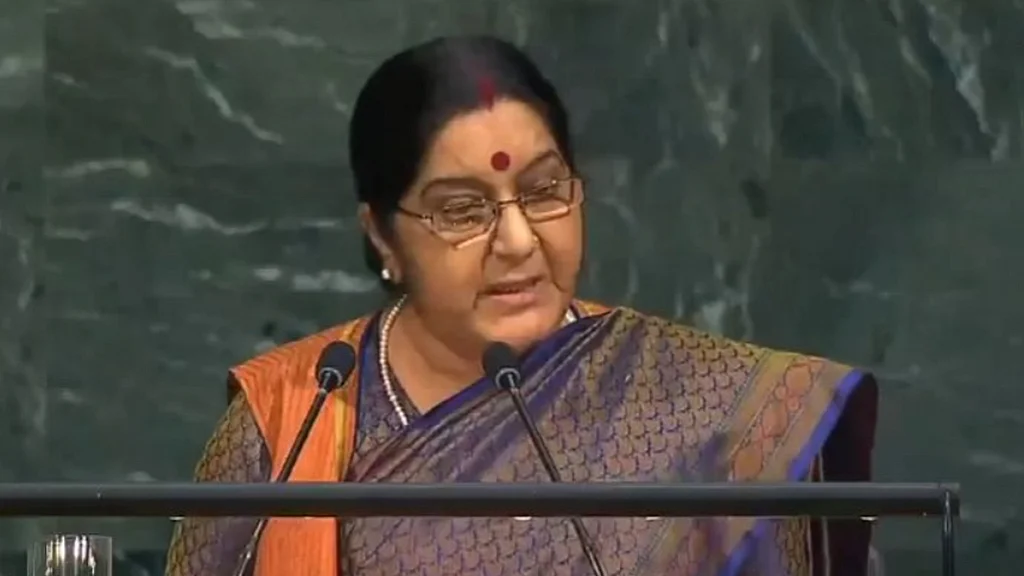India should not have got provoked by Pakistan at the UN
Badmouthing Pakistan is counterproductive. It lowers India to the league of a remote-controlled military-mullah regime. It hyphenates the two nations in the eyes of the international community

As is well known, the Government of Pakistan has a one-point agenda – Kashmir. Its entire energies are directed at fulfilling its ambition of undoing the constitutional and lawful accession of the princely state of Jammu and Kashmir to India under the provisions of Indian Independence Act passed by the House of Commons. This legislation was the basis of the transfer of power from British to Indian and Pakistani hands in 1947. Since 1989, Pakistan has continuously instigated trouble in the Kashmir valley and labelled retaliation by Indian security forces as human rights violations (of which there has certainly been some, but nowhere near the exaggeration by Islamabad).
Thus, at international fora, Pakistan cannot resist highlighting the Kashmir dispute. This, noticeably, happens more often when relations between the two countries are acrimonious. It slightly tapered off during the decade of Dr Manmohan Singh’s prime ministership, but has since returned with a vengeance. Singh’s non-confrontational approach, blended with behind-the-scenes diplomacy, elicited a remarkable peace proposal on Kashmir from General Pervez Musharraf. It didn’t progress further because there was understandably a question mark over whether the villain of Kargil could be trusted.
Pakistan was brought to its knees in 1971 with the dismemberment of its eastern wing. But since 1989, it has resurfaced as a headache for India – during which period it also declared its hands as a harbourer of nuclear weapons. Yet, India avoided being preoccupied with Pakistan. Instead, in 1991, New Delhi embarked on a significant post-cold war re-orientation of its foreign policy. With landmark economic reforms and by establishing diplomatic ties with Israel, it softened western hostility. With a peace and tranquillity treaty, it reduced the Chinese threat. With a Look East outlook, it engaged ASEAN. It also reached out to Pakistan with a Most Favoured Nation trade commitment.
In 1998, though, the ascent of India was halted by the Bharatiya Janata Party-led government jingoistically testing nuclear devices, thereby fetching international condemnation. If it was meant to petrify Pakistan, just the opposite was accomplished. The latter responded with its series of explosions, thereby coming out of the closet. Tension mounted between the two nations and a bloody limited war took place in Kargil in 1999. Under pressure from superpowers, Prime Minister Atal Bihari Vajpayee hosted a summit with Musharraf in 2001. It ended in failure, although in 2004 the latter agreed to stop export of terrorism to India from Pakistani soil.
Not unexpectedly, with a virtually Rashtriya Swayamsevak Sangh government with a Lok Sabha majority in place, India’s interaction with Pakistan has in the past 40 months degenerated to a pracharak versus mullah slanging match, which is being viewed contemptuously by the rest of the world.
The ball was set rolling by Pakistan’s new Prime Minister, Shahid Khaqan Abbasi. He standardly trotted out: “The legitimate struggle for self-determination of the people of Jammu and Kashmir continues to be brutally suppressed by India’s occupation forces.” He went to the extent of claiming Indian actions “constitute war crimes”. He also accused India of using “rape as an instrument of state policy”. He raised the spectre of war between the two countries; and called upon the international community to “act decisively to prevent the situation from a dangerous escalation”. He added, “We call on the Security Council to fulfil its obligation to secure implementation of its own resolutions on Jammu and Kashmir,” and asked for an appointment of a UN Special Envoy on Kashmir.
After double-crossing the West in Afghanistan and being the epicentre of terrorism, Pakistan’s credibility and reliability is at its lowest ebb. The world, barring some Islamic states, pays little attention to what it proclaims. It has been hammering away at the current badly mismanaged situation in Indian-controlled Kashmir for the past 15 months. It’s a state of affairs India cannot be proud of. Yet, few have been listening to Islamabad. In such circumstances, the most powerful response to Abbasi would have been either complete silence or a dismissal of his speech in one sentence by External Affairs Minister Sushma Swaraj.
Far from embracing such tactics, she indulged in ineffective abuse and rhetoric. Her description of Pakistan as “the world’s greatest exporter of havoc, death and inhumanity” was hyperbole where humour might have been more impactful. What was worse was a paragraph full of a childish parroting of “We are so much better than you”. A third of her speech was directly or indirectly devoted to Pakistan. It might have gone down well with those who enjoy Pakistan-bashing but it is not the signal a country aspiring to be a major player on the world stage should be transmitting at the United Nations General Assembly.
What Hindu chauvinists don’t understand is badmouthing Pakistan is transnationally counterproductive. It lowers India to the league of a remote-controlled military-mullah regime. It, therefore, equates and hyphenates the two nations in the eyes of the international community. Last but not the least, it undesirably focuses attention on Kashmir.
Follow us on: Facebook, Twitter, Google News, Instagram
Join our official telegram channel (@nationalherald) and stay updated with the latest headlines